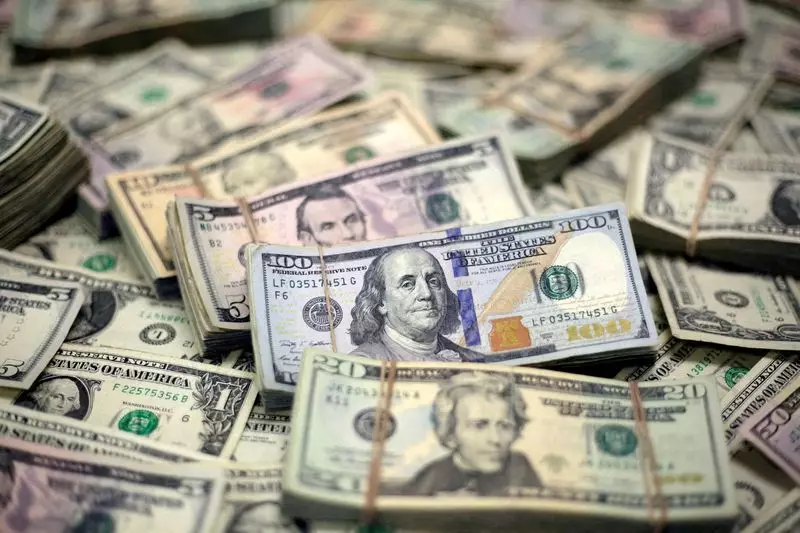The international currency market finds itself at a crossroads this week, as global investors prepare for significant political and economic transitions. The upcoming U.S. elections and central bank decisions are creating a climate of caution and speculation, particularly influencing dollar valuations and bond yields. As we delve into these developments, it becomes evident that both domestic political tensions and international economic policies will shape market trajectories moving forward.
The U.S. dollar experienced a dip against several major currencies in Asia on Monday, which signals a broader market reaction to anticipated shifts in the political landscape. As the poll numbers between Democratic candidate Kamala Harris and Republican incumbent Donald Trump tighten, speculations about potential interest rate cuts by the U.S. Federal Reserve have led to heightened volatility. The euro climbed incrementally, reinforcing its position versus the dollar as investors seemed to adjust their portfolios based on the changing tide of political sentiment in the U.S.
It’s noteworthy to mention that the dollar index, reflecting the dollar’s strength against a basket of currencies, eased lower, which aligns with market participants’ fears of a potential pivot in U.S. economic policy. As Harris reportedly gained traction among female voters and showcased a surprising lead in key states such as Iowa, analysts have started to reassess their projections about the future state of the dollar and potential inflationary pressures stemming from differing economic platforms.
One of the most significant catalysts for the dollar’s performance in this climate is the Federal Reserve’s upcoming interest rate decision. Analysts foresee a consensus towards a modest reduction of 25 basis points, reflecting a widespread apprehension about economic recovery and inflation metrics. Such predictions align with the market’s current sentiment and underscore a collective anticipation of further easing policies in forthcoming months. These factors contribute to predictions of a decline in bond yields, which historically correlate inversely with rate cuts.
Interestingly, financial institutions like Goldman Sachs have taken a more cautious stance in their forecasts, signaling uncertainty regarding the timing and extent of subsequent rate adjustments. The consensus is not solely focused on immediate impacts but also on long-term economic conditions beyond 2025. This dovish sentiment in financial projections may lead investors to reassess not only their bond portfolios but also their positions in commodities such as gold and cryptocurrencies, which often behave as hedges against currency fluctuations.
In tandem with the U.S. Federal Reserve, several other central banks are scheduled to meet this week, including the Bank of England (BoE) and the Swedish Riksbank, among others. The BoE’s anticipated decision to cut rates further complicates the narrative for the British pound, which recently faced downward pressure following political developments and economic critiques pertaining to the Labour government’s budget policies.
Moreover, speculations around China’s National People’s Congress suggest that additional fiscal stimulus may be on the horizon. Beijing’s consideration of over 10 trillion yuan in new debt issuance hints at a strategic effort to bolster its flagging economy as it grapples with ongoing challenges. This global context of coordinated monetary easing challenges conventional wisdom around currency strength, especially as investors navigate a landscape marked by increasing interdependence of global economies.
As the week progresses towards crucial political and financial events, market sentiment appears to encompass a mix of optimism and caution. Many traders are acutely aware of the potential market repercussions tied to election outcomes and central bank behaviors. The juxtaposition of a Harris or Trump victory could provoke diverse market reactions, influencing not only the currency space but also equity markets globally.
Chris Weston, an analyst with Pepperstone, highlights the potential reversal of “Trump trades” should there be a change in administration alongside a split Congress. The delicate interplay between governmental control and economic policy underscores the intricate relationship that exists between politics and market outcomes. The prospective implications extend beyond immediate gains or losses; they could reshape investor strategies for months, if not years, to come.
The financial markets are poised for a transformative week shaped by the dual forces of political elections and monetary policy adjustments. Investors must carefully analyze shifting market dynamics while remaining nimble in their strategies to navigate a landscape fraught with uncertainty and opportunity.

